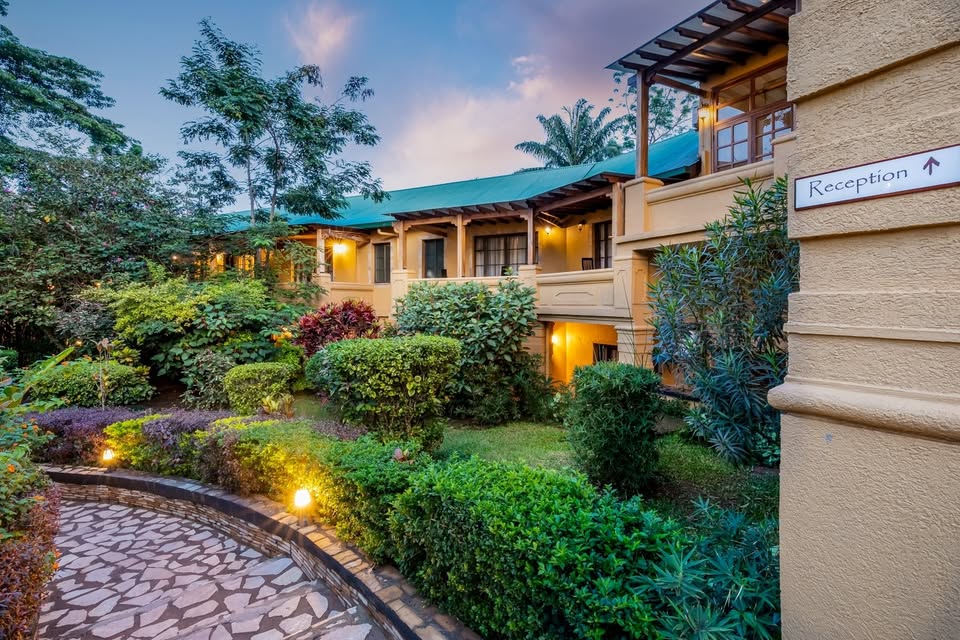Equity Bank vs Emin Pasha Hotel: The cost of conflating public inefficiency with private risk

The developing saga between Prism Construction, the Ministry of Education, and Equity Bank Uganda is a vivid illustration of a growing malaise in Uganda’s governance culture: the dangerous conflation of public sector dysfunction with private sector risk.
At the heart of this case lies a UGX150 billion commercial loan extended by Equity Bank to businessman Kennedy Losuk Lokule for the development of the Emin Pasha Lake View Residence, a luxury property in Muyenga. The borrower, through his affiliate Prism Construction, also undertook work on a government project—constructing a technical college in Bushenyi under the Ministry of Education and Sports (MoES). The state’s failure to honour its obligation to Prism, amounting to UGX8.4 billion, has now snowballed into a liquidity crisis that threatens not only Lokule’s property empire but also the financial institution that backed his vision.
That a commercial bank has moved to foreclose on the collateral behind a non-performing loan is unremarkable—it is the standard legal recourse under such circumstances. What is deeply troubling is the government’s reaction: applying political pressure on the lender to defer enforcement of the court-approved foreclosure, while simultaneously failing to settle a long-overdue contractual obligation.
President Museveni’s directive to the Attorney General to halt the auctioning of Lokule’s Emin Pasha Hotel, combined with political overtures from Finance Minister Matia Kasaija and presidential advisor Odrek Rwabwogo, reflects an overreach that risks distorting the fundamentals of Uganda’s credit environment. In principle, political authority has every right to intervene when public interest is at stake. But in this case, the matter is neither nationalised nor public—it concerns a commercial loan, lawfully executed and legally enforced, with implications that are now being offloaded onto a private lender.
It must be clearly stated that the Ugandan government’s failure to settle its contractual obligations to Prism Construction should not become Equity Bank’s problem.
What’s unfolding is symptomatic of a deeper rot. Ministries and agencies continue to sit on trillions of shillings in arrears owed to service providers. Rather than systematically settling these verified claims, Treasury officials have relied on reactive, ad hoc bailouts disguised as support for distressed businesses. This practice creates fertile ground for rent-seeking. Genuine claimants languish while politically connected actors position themselves for special treatment.
The message being sent—wittingly or not—is that businesses that leverage political connections are more likely to recover their dues than those that pursue due process through the courts or Treasury channels. It undermines faith in Uganda’s procurement system, distorts incentives, and exposes the banking sector to systemic risk.
Allowing political authority to override judicial processes and contractual obligations erodes the rule of law and corrodes credit discipline. It introduces sovereign risk into what should otherwise be straightforward commercial engagements, and the long-term consequences for Uganda’s credit rating, investor confidence, and financial intermediation are grave.
Already, banks operating in Uganda factor in high risk premiums due to legal unpredictability and bureaucratic inefficiencies. When even court-sanctioned foreclosures can be stayed by political fiat, lenders will logically adjust—either by tightening credit to the real economy or raising lending rates to price in regulatory uncertainty. Either scenario stifles investment and punishes legitimate borrowers.
Moreover, while the government may claim to be acting to preserve economic assets or protect local investors, it fails to grasp the ripple effect on banking operations. The funds lent to Prism and Lokule are not abstract—they are depositors’ savings. By shielding borrowers from the consequences of default, the government is effectively asking banks to subsidise its failures at the cost of savers, shareholders, and future borrowers.
If the government believes Prism Construction was wronged, the solution is not to pressure Equity Bank into suspension of its rights. The urgent and appropriate course of action is to settle the MoES arrears, which have been outstanding since 2021. If the state had paid on time, this loan would not have soured.
Uganda must learn that respecting private contracts, enforcing payment discipline, and managing public obligations transparently are foundational to sustainable economic growth. These cannot be selectively suspended when politically inconvenient.
In the long run, the economy will only benefit if government honours its debts, restrains from meddling in judicial processes, and allows commercial institutions to operate based on the law—not patronage. Anything less turns development finance into a rigged game, punishing prudence while rewarding political proximity.
To restore confidence and credibility, the Ministry of Finance must expedite the payment owed to Prism Construction. Simultaneously, it should publish a clear framework for verifying and settling all government arrears, with timelines and transparency.
Let businesses rise or fall on their own merit—not the whims of political expedience.


 UDB to lead charge for homegrown development finance solutions as Uganda hosts inaugural Africa summit
UDB to lead charge for homegrown development finance solutions as Uganda hosts inaugural Africa summit
 High stakes showdown as Stanbic National Schools Championship enters final lap
High stakes showdown as Stanbic National Schools Championship enters final lap
 Airbus opens Africa customer support centre in Johannesburg, enhancing support for African operators
Airbus opens Africa customer support centre in Johannesburg, enhancing support for African operators
 CCC steps up enforcement in 2024 amid rising mergers and consumer cases across COMESA region
CCC steps up enforcement in 2024 amid rising mergers and consumer cases across COMESA region
 Global aviation facing critical talent shortage:Boeing projects demand for 2.4m aviation jobs by 2044
Global aviation facing critical talent shortage:Boeing projects demand for 2.4m aviation jobs by 2044
 Sumsub Joins Uganda’s Fintech Industry Association FITSPA
Sumsub Joins Uganda’s Fintech Industry Association FITSPA
